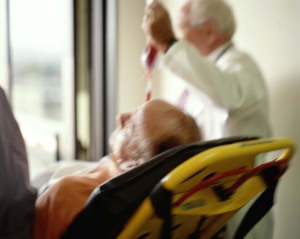Sin entered the world through the disobedience of the first people, Adam and Eve. The passage in Genesis containing the creation story is one we are familiar with and so we are aware that there were consequences to the disobedience of Adam and Eve. ‘To the woman he said, “I will greatly increase your pangs in childbearing; in pain you shall bring forth children, yet your desire shall be for your husband, and he shall rule over you.” And to the man he said, “Because you have listened to the voice of your wife, and have eaten of the tree about which I commanded you, ‘You shall not eat of it,’ cursed is the ground because of you; in toil you shall eat of it all the days of your life; thorns and thistles it shall bring forth for you; and you shall eat the plants of the field. By the sweat of your face you shall eat bread until you return to the ground, for out of it you were taken; you are dust, and to dust you shall return.” (Genesis 3:16-19)
Here is contained the consequences: suffering and death. For it was only through sin that suffering and death entered the world. What torment it must have been for Adam and Eve to be thrust from the Garden of Eden, paradise with God, into the cruel world outside, knowing full well that as a result of their actions they would suffer pain and sickness and ultimately die. And that these consequences would be passed down from them to all of their descendants.
But of course, there was always hope. For in that same chapter of Genesis, before he remonstrates with Adam and Eve, God speaks to the serpent and says: ‘The LORD God said to the serpent, “Because you have done this, cursed are you among all animals and among all wild creatures; upon your belly you shall go, and dust you shall eat all the days of your life. I will put enmity between you and the woman, and between your offspring and hers; he will strike your head, and you will strike his heel.”’ (Genesis 3:14-15)
Throughout the Old Testament this promise of a Messiah is foretold and of course, in the New Testament we see that very promise fulfilled through the crucifixion, death and resurrection of Christ Jesus. St Paul, explains this eloquently in his letter to the Romans: ‘For just as by the one man’s disobedience the many were made sinners, so by the one man’s obedience the many will be made righteous.’ (Romans 5:19)
Jesus then, is the new Adam, who defeats sin by striking the serpent’s head, and he beckons us all to new life with him. Though we have this promise of eternal life and the Sacraments and graces within the Church needed for us to achieve this, illness and death are ever present in our earthly existence. ‘Illness and suffering have always been among the gravest problems confronted in human life. In illness, man experiences his powerlessness, his limitations and his finitude. Every illness can make us glimpse death.’ (CCC 1500)
Grave illness helps us understand our mortality. Generally speaking there are two ways in which people react to this glimpse of death. On one hand we can become self-absorbed and focus on the negative aspects of death and suffering and perhaps go so far as to despair or even blame God. Conversely, illness can ‘also make a person more mature, helping him discern in his life what is not essential so that he can turn toward that which is. Very often illness provokes a search for God and a return to him.’ (CCC 1501)
How many times have we heard of people who came back to God on their deathbeds? There have been many famous examples like Oscar Wilde. How much rejoicing in Heaven for such conversions? We can only imagine. But even more good can be achieved through illness. Indeed, through the Sacrament of the Anointing of the Sick we can unite our suffering with that of Christ’s Passion – we can participate in the saving work of Jesus. (cf. CCC 1521)
So then, we have two choices when it comes to suffering. We can anguish and despair over our lot in life and choose to keep God out of the equation or even let ourselves become disparaging and feel that God does not care for us. Or, through this particular Sacrament of healing, we can offer our suffering up in unity with that of Christ’s and contribute ‘to the sanctification of the Church and to the good of all men for whom the Church suffers and offers herself through Christ to God the Father.’ (CCC 1522) In this way, we not only receive graces for ourselves, but for Christ’s Church as well. And so, it pays to remember that our suffering is not futile!
Originally posted 2015-01-22 22:49:46.

